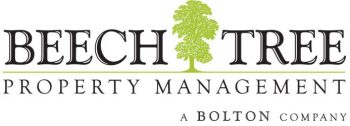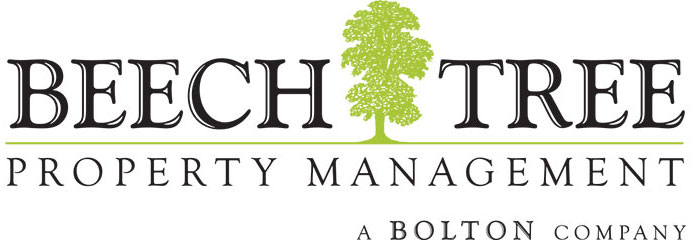HOA
Homeowners associations (HOAs) are organizations which deal with the upkeep of a neighborhood’s common areas and establish standards of acceptable behavior for a community. While they all share a common purpose, the level of activity HOAs undertake and other characteristics vary somewhat from community to community, depending on state and local laws and traditions.
Most HOAs are run by a board, which is typically made up of volunteers elected by their fellow owners. Depending on the size of the neighborhood and how extensive a role the board takes, a board may be organized into committees. The board may have officers, with the most common roles being secretary, treasurer, president and vice president.
HOA board meetings typically follow formal rules and set agendas. How well the HOA sticks to its rules of how to discuss issues may vary somewhat, depending on the level of involvement from owners in the community, among other factors. Some matters may need a vote by all the HOA members to decide, while others only require a vote of the board, depending on how it is structured.
HOAs are typically found in neighborhoods with single-family homes, but not exclusively. Condominium and townhouse neighborhoods may have their own associations, or they may be formed in areas with a mix of housing types. They are commonly found in cooperatives and planned communities. A HOA may be incorporated and actually own the common property, or it might care for it on behalf of the developer or other party who is the owner. If it does own the property, a HOA can hire a firm to care for it, in which case HOA dues might be payable to that company.
When trying to learn about your HOA, the first thing to determine is usually whether it is incorporated. If so, then the Articles of Incorporation are generally the most important document, and take precedence over all others. These articles may include descriptions of rules, or just establish the existence of the HOA. Specifics are generally spelled out in either the CC&Rs or the bylaws. This will include election procedures for the board, which is at the top of the HOA. Documents will describe what the board can do on its own, what it needs the approval of the residents to do, and what duties are performed by any other party.
Looking after common property might involve mowing the grass, shoveling snow, repaving streets, cleaning up dead trees and similar tasks. Trash collection, water and sewer services and activities of that nature can also fall under the HOA’s purview. In some neighborhoods, HOA management will also involve upkeep for common clubhouses, swimming pools, tennis courts and similar facilities. Those living in condominiums may pay the HOA for building upkeep, dealing with elevators and other matters that affect all residents.
The size of the neighborhood and its common areas is often a factor in the HOA’s general activity level. Communities with little space may have relatively low-key HOAs, while those with extensive shared facilities will need to remain active to keep them in good condition. The HOA is also responsible for ensuring residents follow regulations, such as rules against pets or building fences.
An HOA’s exact responsibilities and powers can be determined by consulting its governing documents, such as the Articles of Incorporation, covenants, conditions and restrictions (CC&Rs) and bylaws. Parts of these will describe the workings of the HOA itself, but the rest describes what it can do, when and how.
Its authority may cover things like the maintenance and upkeep standards owners are expected to meet as members of the HOA. Part of living in the community typically includes agreeing to keep a home, its lawn and surrounding property in good condition. Rules may limit new construction, so residents likely need permission if they wish to install a swimming pool, erect a fence or build an addition. Standards may apply to driveways, landscaping and other aspects of a property.
While limited to some extent by state and local laws, HOA rules and regulations are also supported by them. This means that becoming a member involves entering into a legally binding contract. As long as the HOA stays within its authority and its governing documents comply with state and local laws, courts will usually uphold their actions if an issue gets that far. While rules are officially set in documents, the HOA can usually change them through a member vote or similar procedure, so there is recourse if a particular restriction or bylaw seems unfair.
Disciplinary actions by a HOA are typically in the form of fines, but in more serious cases may go as far as a lien on the property. For a sufficient offense, the HOA may even be able to foreclose on a home, depending on its rules. If an HOA assesses fines, even incorrectly, it may be better to pay them first and then contest the matter to avoid any late fees, penalties or other consequences.
A professional management company, such as Beech Tree Property Management, provides knowledge of the operations of the associations, the governing statutes, continuity in operations, accurate accounting, expertise in condominium and homeowner association management, and better negotiating power with vendors, contactors and insurance companies.
Should you decide to retain Beech Tree Property Management, our personnel will come to the property or your current management company’s office to review and inventory all records. Owner names and account balances are entered into our database and notification letters and current statements are generated and mailed to the owners. This process generally takes two days to four weeks depending on the size of the association.
Beech Tree Property Management will notify, in writing, each vendor to fully explain our role as management and to notify the vendor of the address and contact changes for the association.
No. The board will continue to function in the capacity of the association’s administrators. All professionals, such as the association’s attorney(s) and landscaping company continue providing their services. The board also has control over actions of the management company. Beech Tree Property Management’s function is to carry out board directives, provide experienced recommendations, set up documented operating systems and procedures, and establish a level of operations and recorded keeping for the association.
Although the board ultimately has final authority and responsibility for the operation of the association, Beech Tree Property Management provides many useful tools in assisting the board in its decision making, such as monthly management reports, dealing with and coordinating vendors and development of certain non-technical bid specifications, detailed accounting, etc. All of these functions help relieve the board in the day to day operation and management of the HOA or condo.
Probably not. In most cases, a community association manager can help with most management operations. In the event of specialized services such as legal services, general contracting, engineering, and other “professional designations,” consultants may be needed, and beech Tree Property Management will work with your board to coordinate.
No. Beech Tree Property Management will be retained as the associations “Agent”. And as the association’s Agent we are like a partner to them. Yes, we are paid for our services, but we also expect our boards to utilize our knowledge, training and expertise in our industry. Many board members serve with little to no knowledge of the operation of both a not for profit corporation and/or a homeowners (HOA) association or a condominium (COA) association. Beech Tree Property Management’s role is to assist those members as their Agent in the proper operations of the association and its not-for-profit corporation.
Beech Tree Property Management offers such a diverse collection of services from simple account administration, one-time consulting, all the way to full service association management. Therefore, fees are based on what the association wants with regards to service. Because each association is unique in its makeup and each association has different needs, so does the management pricing. We do not set fees until we are able to identify and define what services the association is seeking.
Please fill out our online service quote request. This will allow us to better understand your needs as a Home Owners Association.


